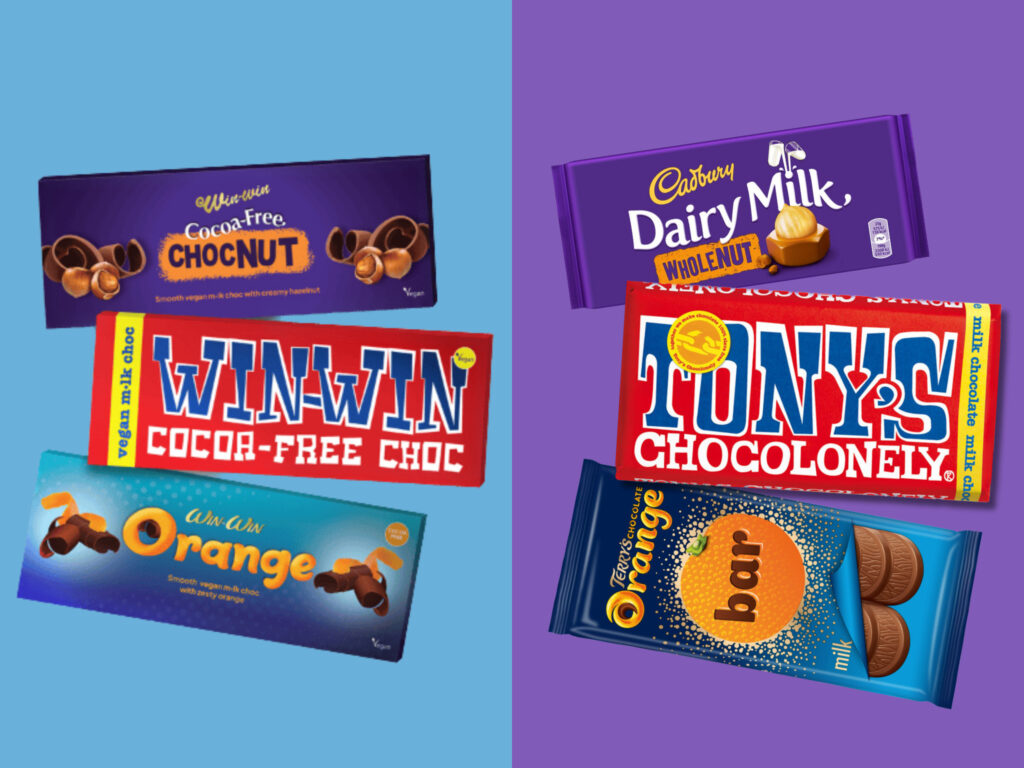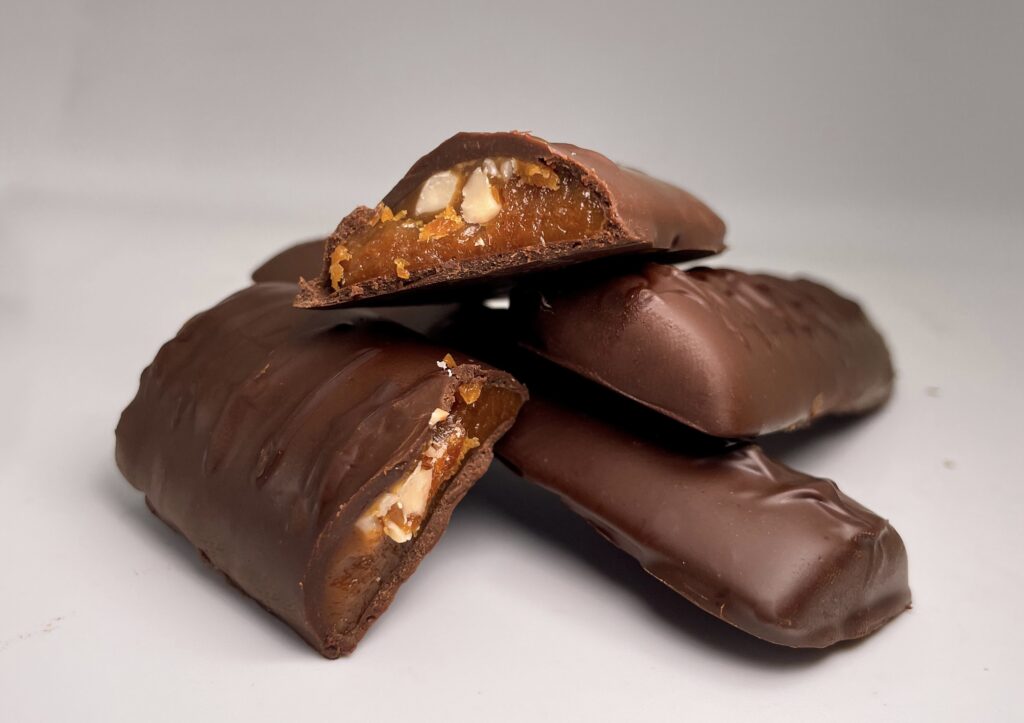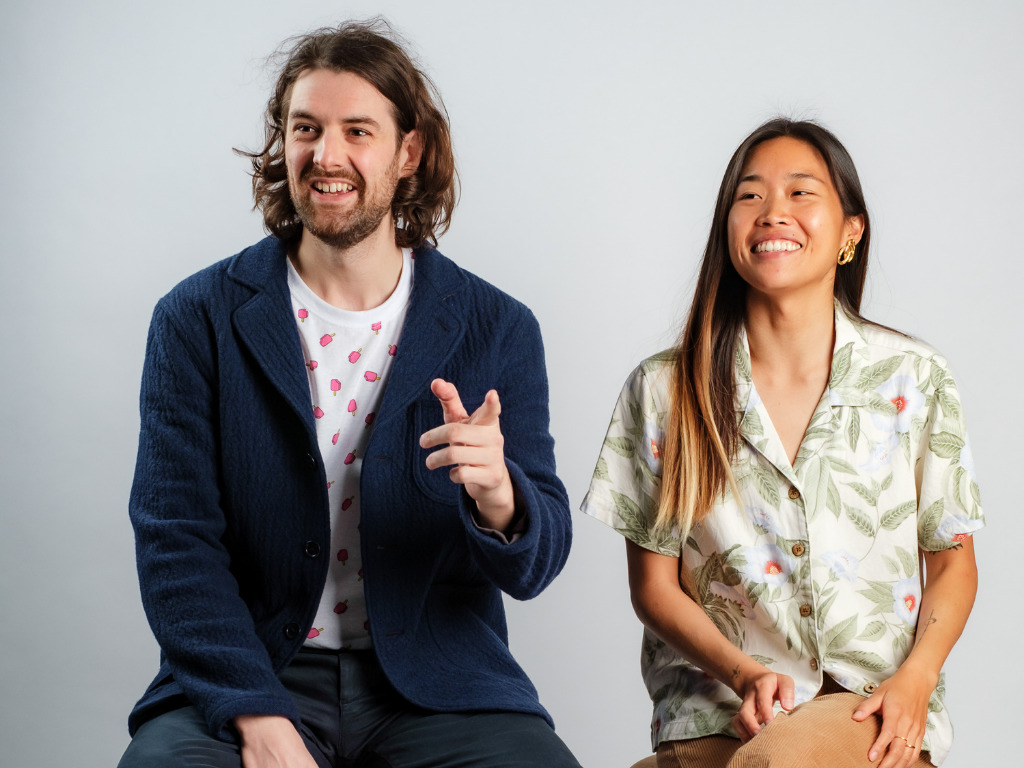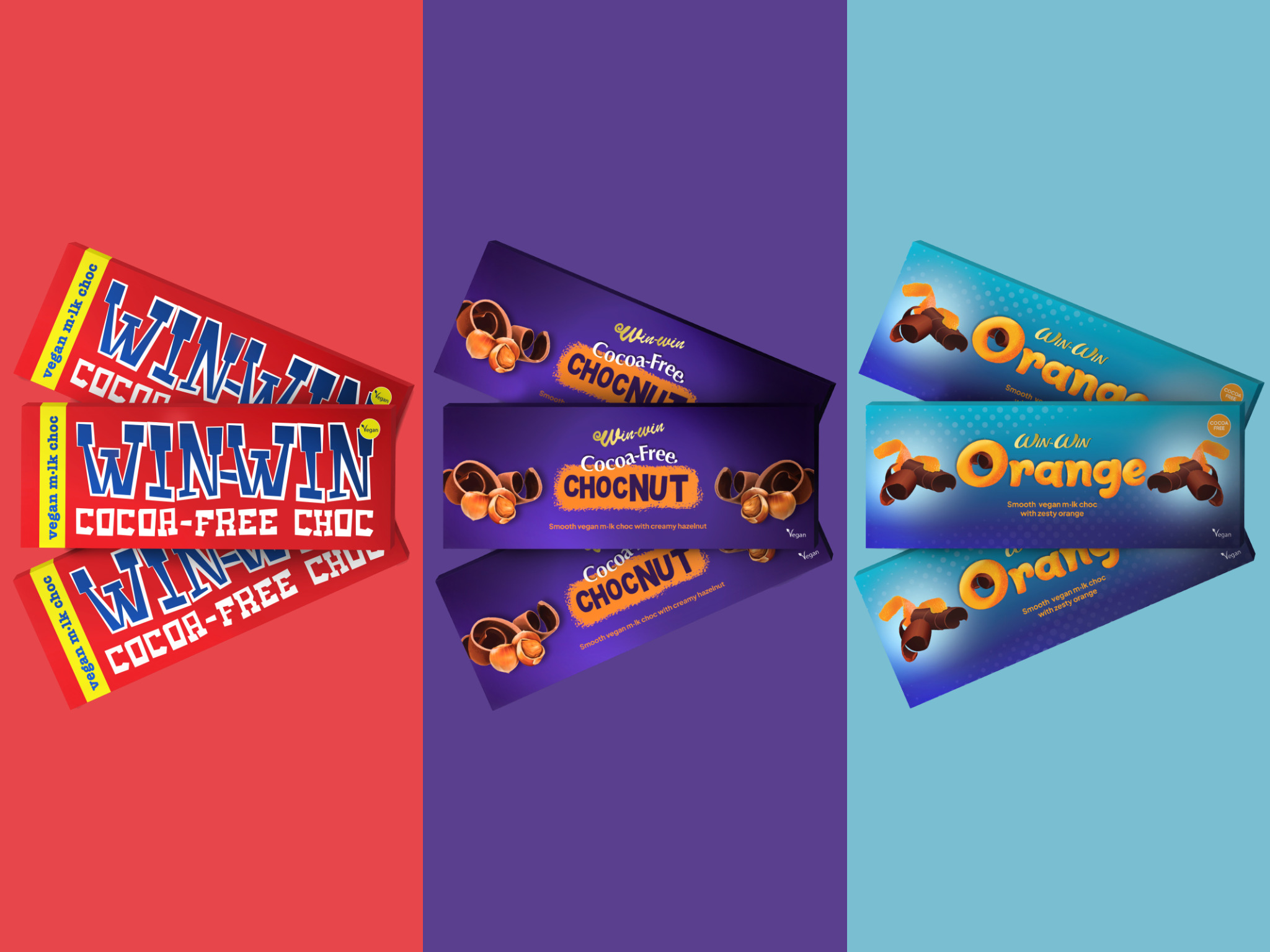Cocoa-Free Cadbury? WNWN Prepares to Get Sued with Vegan Alternatives to Popular Chocolates
5 Mins Read
London-based WNWN Food Labs is releasing three vegan cocoa-free chocolate products inspired by British favourites from Cadbury, Tony’s Chocolonely and Terry’s – in strikingly similar packaging that’s as cheeky as it’s risky.
A year after launching a limited-edition cocoa-free version of the famous Daim chocolate bar, WNWN is unveiling three more products for the UK market that take on established classics. The brand’s new cocoa- and palm-oil-free chocolates riff on the popular Cadbury Wholenut, Terry’s Orange and Tony’s Chocolonely.
The new alt-chocolates use WNWN’s base of carob and barley and are made with a traditional fermentation process. Moreover, the company employs sustainable vegetable fats (including shea butter, which balances chemical requirements with eco-ethical credentials) and oat milk, which means the chocolates are vegan, though not gluten-free.
Asked why the company chose to mimic these specific chocolate brands, WNWN co-founder Johnny Drain told Green Queen: “Our choices were based on a list of the bestselling and most-loved British chocolate bars, and we also did an Instagram poll to understand which bars people would like to see given the ‘win-win’ treatment. Those three emerged as our win-winners.”
Chocolate lawsuit incoming?

The Tony’s Chocolonely alternative acts as plain milk chocolate, while the Terry’s substitute contains the same base, with added orange and grapefruit oils. The Cadbury Wholenut lookalike has the same ingredient base but slightly lower sugar content, with extra hazelnut paste.
While WNWN did a similar thing with Daim last year, it has gone a step further in its mimicking process. All the chocolates have packaging that’s eerily similar to their original counterparts. The Cocoa-Free Choc Nut has a purple background with similar font colours as Cadbury’s, the Vegan M•lk Choc is bright red with identical fonts and placements as Tony’s, and the Cocoa-Free Orange takes inspiration from Terry’s blue hues and orange peel-like fonts.
It feels primed for lawsuits – something even the brand acknowledges. “I think the food and beverage world has seen it all in its time, so it’s safer to not rule anything out,” said Drain. “We chose this approach to draw attention to the fact that while we know the British public loves these bar flavours, they are largely not aware of what underpins much of the chocolate industry.
“And yet those issues are hiding in plain sight: they are in the news (sometimes), easily searchable online, and even big chocolate companies now speak more openly about them. It’s same-same, but different: we’re offering an alternative route to forms of deliciousness that people are very familiar with.”
Big Chocolate problems

While Cadbury and Terry’s are British favourites, both use palm oil in their chocolates, which is a major driver of deforestation and linked to human rights violations, with Indigenous communities losing their lands and workers exploited with poor conditions and pay.
Tony’s Chocolonely, meanwhile, doesn’t use palm oil and is known as an ethical brand. It has topped the Sustainable Brand Index for five out of the last six years, but it’s still a chocolate maker, which comes with its own issues. The cocoa industry is linked to deforestation and human rights abuses, and chocolate is a huge greenhouse gas emitter.
In fact, the only food worse than dark chocolate when it comes to supply chain emissions is beef. In addition, cocoa beans have one of the highest carbon opportunity costs, which is the amount of carbon lost from native vegetation and soils to produce food – if a specific food was not produced on a given plot of land, this land could be used to restore native vegetation and sequester carbon.
The EU actually banned cocoa and chocolate linked to deforestation in June, with companies needing to prove that their products haven’t contributed to deforestation since 2021. In the US, the Biden administration was sued in August to block imports of cocoa harvested by children in West Africa, which has been linked to the chocolate used by brands like Hershey’s, Mars and Nestlé.
Additionally, scientists have warned that cocoa trees are threatened – and a third of them could die out by 2050 – which could lead to a global chocolate shortage. It’s for these reasons that WNWN is banking on convincing consumers to try its eco-friendly alternatives: the brand claims its dark chocolate emits 90% fewer greenhouse gasses than conventional chocolate, after conducting an internal life-cycle analysis.
Spenny chocolate

Drain hinted at this launch in an interview with Green Queen in August when he confirmed the brand had a few ongoing B2B pilots too. This is WNWN’s third launch, after limited-edition runs of dark chocolate thins and the Waim! bars. The company also trialled an alt-chocolate ice cream bar at the Häagen-Dazs Start-Up Innovation Challenge and featured at Fortum & Mason’s Harvest Week last month.
“We’ve reimagined classic chocolate bars by giving them an ethical, sustainable, and cocoa-free twist,” said WNWN co-founder and CEO Ahrum Pak. “While they have a far smaller environmental impact, and they don’t rely on unfair labour practices like the originals they were inspired by, they are every bit as delicious. With these products, we’re showing the world how our cocoa-free chocolate can power the future of sustainable snacking.”
The new chocolates by WNWN, which raised $5.6M in a Series A round earlier this year, are available for pre-order now. But with each 48g bar setting you back £5, it is a steep price. However, as the brand points out, the cost of chocolate is skyrocketing. In London, chocolate is 66% more expensive than it was a year ago, while New York has a 46% higher markup.
After decades of cheap labour and environmental damage, there is a price to pay, in more ways than one.



